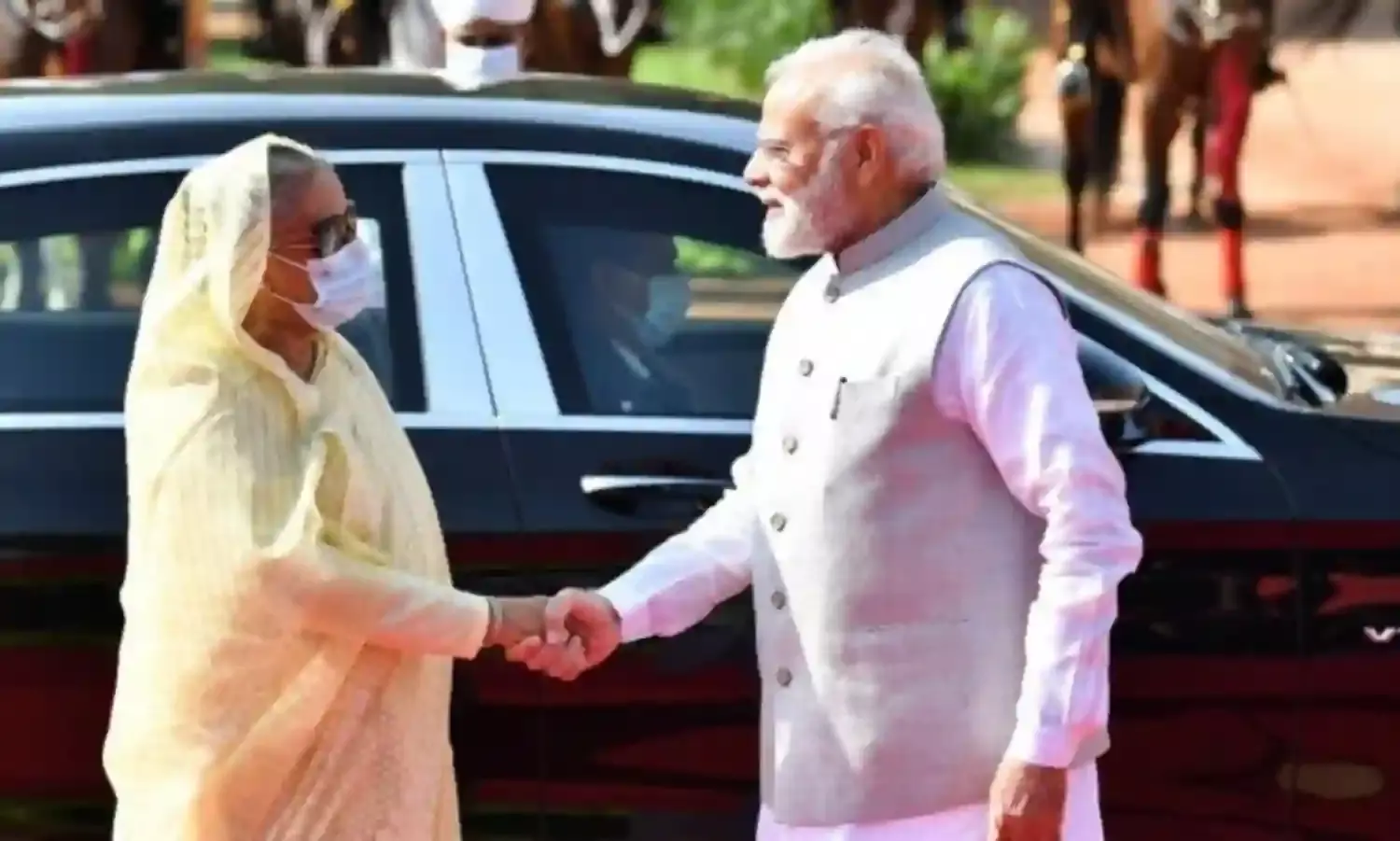Has Sheikh Hasina Solved the Teesta Waters' Logjam?
With India dragging its feet on Teesta, China has stepped into the breach with its Teesta River Comprehensive Management and Restoration project

The joint communique issued at the end of the visit of Bangladesh Prime Minister Sheikh Hasina to New Delhi on September 7 was quite impressive. While India was involved in a number of big-ticket infrastructural and connectivity projects, the communique glossed over the Teesta river waters sharing issue. This issue is critical for Bangladesh, and for Sheikh Hasina personally.
In the lean season, the Teesta river is dry as a bone. But both countries need large amounts of water as both have encouraged paddy cultivation (the boro/dry season paddy crop) in the areas served by the river. Both countries built barrages on Teesta, at about 100 km from each other, to cater to irrigation over more than 1.6 million hectares of land. This includes around 920,000 hectares in West Bengal in India and 750,000 in Bangladesh.
The colossal scale of irrigation for the boro crop will require around 1600 cumec (cubic metre per second) of water. But during the dry period, the Teesta river hardly has 100 cumec of water, i.e. one sixteenth of total water requirement in the two countries.
Recognising the lack of adequate water in the Teesta, a committee of the West Bengal government under Indevar Pandey, principal secretary of the Public Works Department, proposed that the state would irrigate only 52,000 hectares with Teesta water, a reduction over 90% from the original plan. Pandey was opposed to sharing more water with Bangladesh because of the lack of water.
The Gajaldoba barrage in India and the Teesta barrage in Bangladesh impound water for irrigation. Downstream, the reduced flow creates large dry tracts of sand devoid of fertile silt. The sun bakes them into hard islands, making them unsuitable for cultivation. In the monsoon, these tracts constrict the flow of the river and the swelling waters inundate neighbouring fields. Crops are destroyed.
Hydro-power generation is also reducing the flow of water in the Teesta. During the lean season, all large power plants impound water which reduces the flow of the river. The Indian State of Sikkim has a number of such power stations on the Teesta.
While governments in New Delhi (be it Congress-led or BJP-led) have been ready for a deal with Bangladesh, West Bengal Chief Minister Mamata Banerjee, has been dead-set against it on the plea that there is no water to share.
Be that as it may, India has a stake in the issue, not just because it needs the Teesta's waters. India also needs to ensure that Sheikh Hasina remains in power in Dhaka for trouble-free Indo-Bangla relations. Hasina is arguably the only steadfast friend of India in Bangladesh.
As expected, the glossing over of the Teesta issue in the joint communique came in for criticism in the Bangladeshi media. Teesta waters have been a contentious Indo-Bangla issue for very long. Slurring over the Teesta issue will not be in the interest of India's relations with Bangladesh, as it is an emotive issue in Bangladesh.
Although Hasina's Awami League is still the top dog in Bangladeshi politics, and the opposition Bangladesh Nationalist Party (BNP) is leaderless and in tatters, the Awami League may have to face an anti-incumbency factor in the 2023 parliamentary elections.
Even if the structurally weak BNP is unable to cash in on the anti-incumbency factor, anti-Indian radical Islamic groups could exploit it to the hilt. This could reduce the Awami League's margin of victory and force it to accommodate pro-Pakistan or pro-China groups when it assumes power again.
The Teesta waters issue is a peoples' issue because the river serves 14% of the arable land of Bangladesh and sustains nine million people mostly farmers. And rural Bengal is Sheikh Hasina's base.
India has a geopolitical interest also, in helping Hasina and the Awami League stay in power. New Delhi has to keep its rival China at bay in the neighbourhood (including Bangladesh). It has to match China in terms of building infrastructure, increasing investment and trade with these countries.
But this is not all. Equal importance should be given to the needs of the common man in these countries, his concerns and his views. And the common man is the final arbiter in democracies.
With India dragging its feet on Teesta, China has stepped into the breach with its Teesta River Comprehensive Management and Restoration project. Bangladesh has sought a loan of US$ 938.27 million from China to implement it.
The Power Construction Corporation of China (Power China) has reportedly completed the feasibility study. Under the Teesta Project, massive drainage work will be done along the 115 miles of Teesta to deepen the depth of the mid-river bed.
A 115-kilometre four-lane road will be constructed along both banks of the river, officials told the media. At various points, the barrage-cum-road will be constructed to improve the communications system around the two banks of the river.
"A big reservoir will be constructed to conserve huge surplus water that flows through the river every monsoon to ensure water supply for irrigation during the dry season," an official told a Dhaka financial newspaper.
The major features of the megaproject are: 108-kilometre river dredging; 173km river embankments on both sides; and the construction of satellite cities on both banks. The project is projected to create around 800,000 jobs, Water Development Board officials told the media.
India could very well have undertaken this project and won political brownie points from common folk living on the banks of the Teesta, even if it could not release the water they needed.



